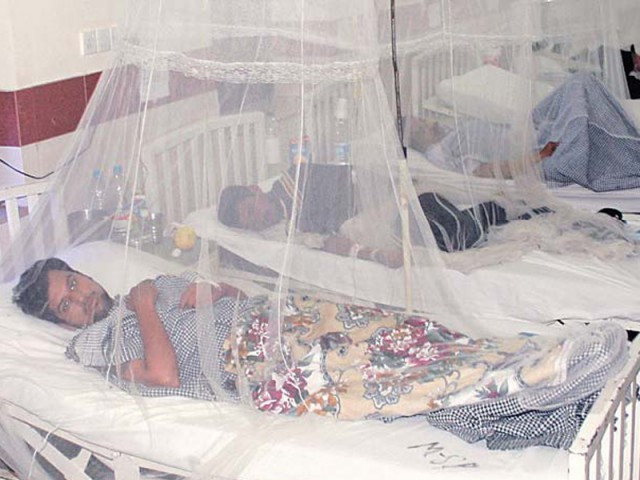Dengue cases surge in K-P with 95 infections in 24 hours
Charsadda tops list of high-risk districts as over 1,200 cases reported in September so far

Dengue cases are on the rise across Khyber-Pakhtunkhwa with health officials confirming 95 new infections in the past 24 hours. This brings the total number of cases reported this month to 1,273.
According to a health department report, Charsadda, Mansehra, Haripur, Peshawar, Kohat, Swabi, and Mardan have been declared high-risk districts for dengue. In the past 24 hours, 23 new patients were admitted to hospitals across the province.
Charsadda has recorded the highest number of cases in September, with 256 patients. Mansehra reported 214, Haripur 148, Peshawar 122, Kohat 99, Swabi 49, and Mardan reported 46 cases. From January to September this year, a total of 2,283 dengue cases have been confirmed in K-P, out of which 1,141 patients have recovered. No deaths have been reported so far.
Officials said that cooler districts are no longer reporting new cases, but infections continue in high-risk areas due to favourable conditions for the virus. The report also noted that data from major MTI hospitals was not included, though sources confirmed that Peshawar’s large hospitals are receiving a significant influx of dengue patients.
Many confirmed cases are being treated on an outpatient basis with prescribed medication, while several remain admitted for care. Most cases in Peshawar are emerging from Tehkal, Palosai, Sethi Town, Gulbahar, University Town, and nearby villages.
The health department has issued advisory to all hospitals, stating that the dengue situation remains under control at the district level. Officials expressed confidence that the number of cases will decline as temperatures continue to drop.
It may be recalled that in March this year, Chief Minister Ali Amin Gandapur, as a timely step to effectively control the expected outbreak of dengue during the upcoming season, directed the authorities to urgently prepare and implement Dengue Action Plan 2025.
On the special directives of the chief minister, a letter was sent to the chief secretary by the Chief Minister’s Secretariat in this regard. The letter says that dengue has posed severe public health challenges in the last several years, and its effective control requires proactive efforts by all departments.
It further said that previous experiences have shown that when structured and coordinated efforts are made during the dormant season, there is a marked reduction in the number of dengue cases in the peak season, adding that building on this, it is imperative to immediately develop and execute synchronised activities to ensure all necessary preventive measures are in place before the peak dengue season.
“Dengue Action Plan 2025 should include a detailed schedule of activities for all the relevant departments, outlining preventive, promotional, and curative measures,” the letter reads, adding that a month-wise framework for the entire year should be developed to ensure that all anti-dengue activities, such as surveillance, vector control, environmental management, awareness campaigns, procurement and healthcare responses, are systematically executed.
It is further directed in the letter that the role for each department should be clearly outlined in the action plan so that it contributes effectively throughout the year adding that a comprehensive monitoring and reporting mechanism be put in place to meet the set objectives.






















COMMENTS
Comments are moderated and generally will be posted if they are on-topic and not abusive.
For more information, please see our Comments FAQ